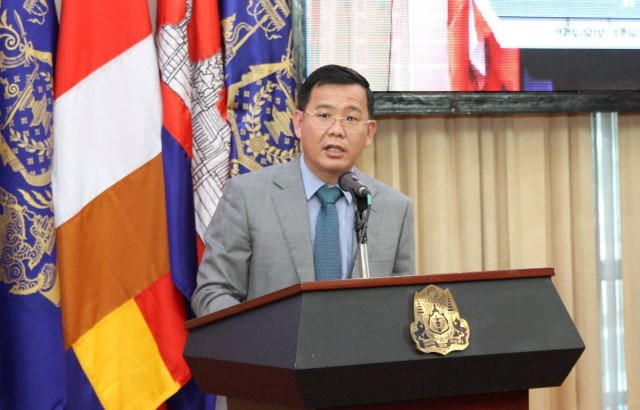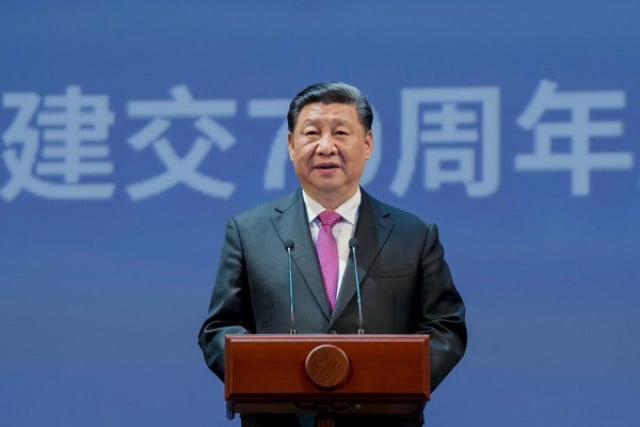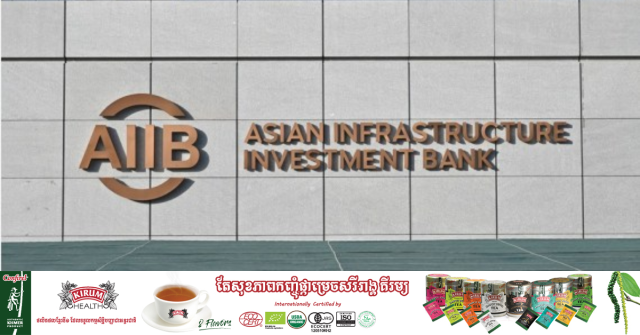Deputy Governor Defends Eviction Compensation

- By Mao Sopha
- and Sam Sopich
- March 3, 2022 4:25 PM
NGOs complain of land injustices
PHNOM PENH--Phnom Penh Deputy Governor Keut Che says the government has never evicted people from their property without compensation.
Che said the government had also done favors for some people who had settled on state land. The government had tried to find land for them, instead of taking legal action.
However, Soeung Saran, executive director of NGO Sahmakum Teang Tnaut, said many forced evictions by the Phnom Penh administration took place with low compensation, such as in Borey Kila in the Boeung Kak lake area while some places were resolved effectively such as the White Building.
Speaking about progress of the commune of the Phnom Penh Capital Administration on March 1, Che spoke of good points of the government and the authorities in solving land issues peacefully and with compensation.
“We know that we have never used any action to evict people unpaid in our country and no one is better than the Kingdom of Cambodia," Che said.
When people seized state land and lived on it, the authorities did not punish them. The government always advised local authorities to seek social land concessions and to provide them with housing solutions and compensation.
He said that in other countries if people dared to seize state land as they did in Cambodia – such as building houses under bridges – the authorities would surely handcuff them.
Che said that if people live on state land, the authorities can grant the land they are living on to them if it does not affect public infrastructure.
He said authorities do not take people from one area to live in other areas without compensation or without solving their housing problems.
However, the authorities would not let individuals encourage people to seize public land in Phnom Penh. He anyone who encouraged people to seize state land would be punished.
Soeung Saran said, “We wonder whether the compensation for land victims is just, acceptable and reasonable. Many land victims previously were evicted with arrests and violence.”
He said citizens have the right to suitable housing, especially those who grabbed land after the civil war or had lived on land since the 1990s. They should benefit from an acceptable solution based on international and national principles.
“It seems many improper land solutions and mechanisms are not based on norms, principles, laws and guidelines, depending on the community situation and environment,” he said.
Am Sam Ath, the deputy director of Licadho said the government should focus on win-win policies for government and victims with acceptable compensation. New locations should have infrastructure, electricity and schools.
“We recognized there never evictions without compensation, but that compensation and new places are unsuitable for citizens to live comfortably,” he said.
Previously, evictions had taken place in which it was difficult for people to live in new places without infrastructure. People should not lose their land if they could not live off the land in their new place.
“Where a solution was improper, people rented other places that affected their lives and the education of their children,” Samath said.
“Compensation is also unfair. The cost of land in Phnom Penh is high, but people are given a low price that makes it hard to buy a new place.”
Land issues are chronic in Cambodian society. The most difficult land issues are between the people and the rich and powerful.
People are still protesting and asking the authorities to intervene. Sometimes people go to the Ministry of Land Management, Urban Planning and Construction in Phnom Penh, and sometimes they seek a solution for the Prime Minister.















